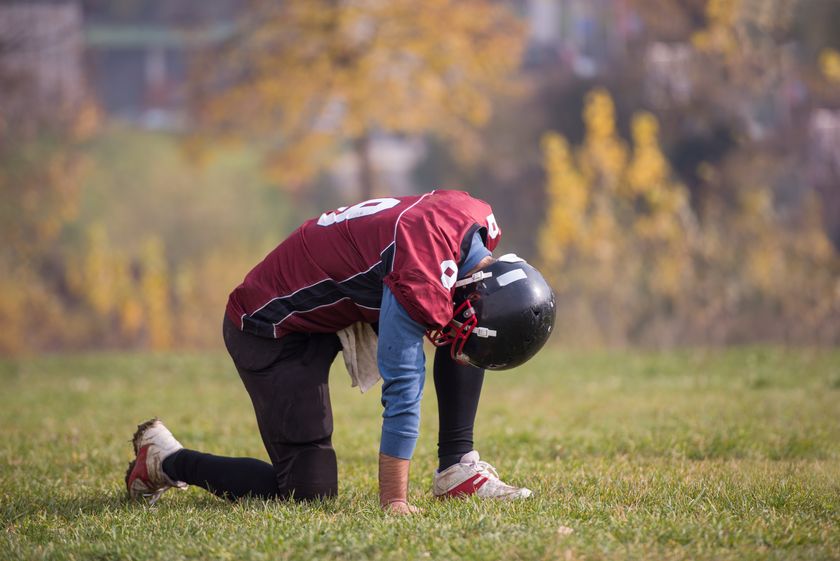- Sections :
- Crime & Public Safety
- Restaurants & Food
- Sports
- More
Categories
St. Luke’s Health—The Woodlands Hospital: How to Overcome Quarantine Fatigue

THE WOODLANDS, TX - As Texas reaches almost four months in quarantine, people may notice they aren’t feeling as great as they did at the beginning. It may be harder to fall asleep, get up in the morning, or put a lot of effort into tasks that were once easy to complete. This is known as quarantine fatigue, a result of being stressed about the COVID-19 pandemic and lacking physical contact for quite a while. Eventually, people start letting things slip due to this fear that they’ve been holding onto for so long. And with no definite end in sight, people need coping methods to overcome the negative effects of quarantine fatigue.
The Signs of Quarantine Fatigue
Quarantine fatigue can present itself as a variety of symptoms, including:
• Insomnia
• Exhaustion
• Loneliness
• Decreased sense of caution
• Restlessness
• Boredom
• Irritability
• Lack of motivation
• Frustration
• Anxiety
• Depression
Advice for Conquering Quarantine Fatigue
While it may seem logical that resuming old activities, like shopping in stores, going to the movies, or dining out, is the answer to overcoming quarantine fatigue, these behaviors can allow for the spread of COVID-19. Instead, try these coping methods:
• Create a routine and stick to it. With the absence of a normal schedule, it’s easy to let typical healthy behaviors fall by the wayside. Choose a set time to wake up, go to bed, eat your meals, and exercise to provide some normalcy to your life.
• Skip processed foods. Many people turn to simple carbs and unhealthy foods when they’re feeling stressed, but these aren’t actually helping. Instead, opt for whole foods, including vegetables, whole grains, fish, lean meats, and complex carbs, like sweet potatoes and fruit.
• Talk it out. While going out to socialize can lead to the spread of disease, you can still connect with loved ones. Set up video calls and share how you’re feeling. If your emotions are particularly strong, many mental health professionals are offering virtual visits that you can partake in from the comfort of your own home.
• Schedule self-care every day. Many people save self-care activities for when they’re feeling particularly bad, but utilizing these healthy practices every day can prevent these dramatic dips in mood altogether. Consider journaling, reading a favorite book, meditating, doing yoga, or going for a run.
• Be gentle with yourself. It’s unreasonable to expect to accomplish everything you used to do. If you can’t get around to a particular task when you said you would, forgive yourself and let go of any negative feelings about it.
If you notice more severe signs of quarantine fatigue, like insomnia or depression, schedule an appointment with a Baylor St. Luke’s Medical Group primary care physician. They can suggest methods for improving your mental health or refer you to a psychiatrist for further treatment.
The Signs of Quarantine Fatigue
Quarantine fatigue can present itself as a variety of symptoms, including:
• Insomnia
• Exhaustion
• Loneliness
• Decreased sense of caution
• Restlessness
• Boredom
• Irritability
• Lack of motivation
• Frustration
• Anxiety
• Depression
Advice for Conquering Quarantine Fatigue
While it may seem logical that resuming old activities, like shopping in stores, going to the movies, or dining out, is the answer to overcoming quarantine fatigue, these behaviors can allow for the spread of COVID-19. Instead, try these coping methods:
• Create a routine and stick to it. With the absence of a normal schedule, it’s easy to let typical healthy behaviors fall by the wayside. Choose a set time to wake up, go to bed, eat your meals, and exercise to provide some normalcy to your life.
• Skip processed foods. Many people turn to simple carbs and unhealthy foods when they’re feeling stressed, but these aren’t actually helping. Instead, opt for whole foods, including vegetables, whole grains, fish, lean meats, and complex carbs, like sweet potatoes and fruit.
• Talk it out. While going out to socialize can lead to the spread of disease, you can still connect with loved ones. Set up video calls and share how you’re feeling. If your emotions are particularly strong, many mental health professionals are offering virtual visits that you can partake in from the comfort of your own home.
• Schedule self-care every day. Many people save self-care activities for when they’re feeling particularly bad, but utilizing these healthy practices every day can prevent these dramatic dips in mood altogether. Consider journaling, reading a favorite book, meditating, doing yoga, or going for a run.
• Be gentle with yourself. It’s unreasonable to expect to accomplish everything you used to do. If you can’t get around to a particular task when you said you would, forgive yourself and let go of any negative feelings about it.
If you notice more severe signs of quarantine fatigue, like insomnia or depression, schedule an appointment with a Baylor St. Luke’s Medical Group primary care physician. They can suggest methods for improving your mental health or refer you to a psychiatrist for further treatment.
Comments •



















